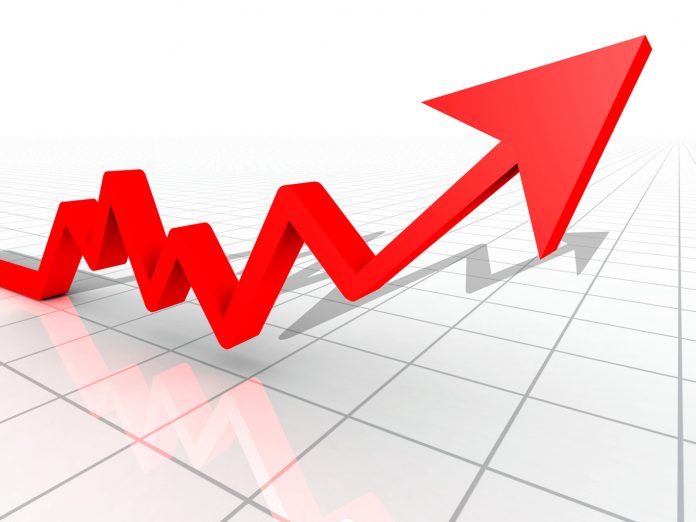Contrary to the prediction by KPMG that Nigeria’s headline inflation will hit 30 percent by December 2023, the country’s headline inflation ended the year at 28.92 percent.
KPMG had predicated its forecast on the recent reforms, such as fuel subsidy removal and the unification of the foreign exchange market.
“Specifically, our model suggests that the combined influence of fuel subsidy removal and foreign exchange liberalisation may drive headline inflation to about 30 per cent by December 2023,” KPMG said then.
The National Bureau of Statistics ( NBS), in its consumer price index (CPI) and Inflation Report for December 2023 released yesterday said the December 2023 headline inflation rate showed an increase of 0.72 percent when compared to the November 2023 headline inflation rate which was 28.20 percent.
According to the report, Food inflation rate in December 2023 was 33.93 percent on a year-on-year basis, which was 10.18 percent points higher compared to the rate recorded in December 2022 (23.75 percent). The rise in Food inflation on a year-on-year basis was caused by increases in prices of Bread and cereals, Oil and fat, Potatoes, Yam and other Tubers, Fish, Meat, Fruit, Milk, Cheese, and Egg.
Consistently rising inflation has been a major challenge facing Nigeria over the years as efforts by the government to tame it have failed to achieve the desired result.
Experts have blamed past government policies which they say fuel rather than fight inflation. An example is the controversial ways and means advances by the CBN to the federal government which is said to increase liquidity.
The new governor of the Central Bank of Nigeria ( CBN), Mr. Yemi Cardoso had announced to the nation that the bank was going to adopt a different approach in the way it will operate, especially with the ways and means the intervention programmes undertaken by his predecessor which he said were distractions for the bank, promising that bank was going to focus on its primary duty of monetary policy to help drive down inflation.
Prominent among the intervention programmes of the CBN was the Anchor Borrowers Programme (ABP) which was meant to help boost food production and drive down food inflation, but after eight years of its implementation has not achieved the objective.
Cardoso while announcing his policy direction said CBN’s foray into quasi-fiscal activities has caused the bank to lose focus.
Providing some perspectives on how Nigeria can bring down the inflation, The Chief Executive Officer of the Centre for the Promotion of Private Enterprise, Dr. Muda Yusuf said the major cause of inflation is the energy crisis. He is however happy that there is indication of increased domestic refining of petroleum products.
According to him, “If we are able to scale up our refining capacity either at the private sector level and other investors or at the government level, we will see some reduction in energy cost, if we are able to achieve some level of reduction, that may impact positively on efforts to bring down inflation.”
He said it is gratifying that the CBN has said it will not go the way of former administration as far as ways and means financing is concerned, “That was a major driver of inflation,” he said. ” if we make progress in the securitisation that has been done and they are able to sell some of that debt to the public to suck in some liquidity, that may also have some moderating effect on inflation.
“If we are able to do something about forex, which is also a major driver of inflation, we will see some positive results.”
He said another area that the government needs to pay special attention to is security.
“We need to do something about security, because presently our farmers are not able to go to farms because of insecurity. If something can be done to bring some dramatic improvement in the security situation, that can also help.”
An economic analyst, Professor Jonathan Aremu, said he was not surprised that the inflation rate grew very slowly in December 2023 given the scarcity of cash Nigerians experienced during the period.
According to him, “Nigerians were denied access to their cash and that limited their purchasing power. You will agree with me that many agricultural produce are perishable and when people are not coming forth to buy, they are sold at give away prices.”
He said if that is a strategy the Central Bank of Nigeria ( CBN), is adopting to drive down inflation, it is a wrong one, adding that it is destructive to the production sector.
On his part, Professor Godwin Oyedokun of Lead City University, Ibadan said he is not bothered about the inflation rate not hitting 30 percent. In his words, “Even one percent increase is not good for us. The truth is that we are a consuming nation, we are not producing enough to satisfy our needs.”
He said that one area this government should focus on is to encourage production. “And we can only achieve that through strategic planning,” he said.
The National President of All Farmers Association of Nigeria (AFAN), Arc. Kabir Ibrahim said the high rate of Food inflation is caused by the government failing to obey its own rules.
According to him, “The purchase of rice to give to the legislators in order to give their constituents is mere politics and negates the principle of guaranteed minimum price (GMP) which says: “Do not cause any government intervention in purchase of food items in the middle of general inflation because such will exacerbate food inflation. You can see that food inflation is at an all time high today at over 33 percent.”


